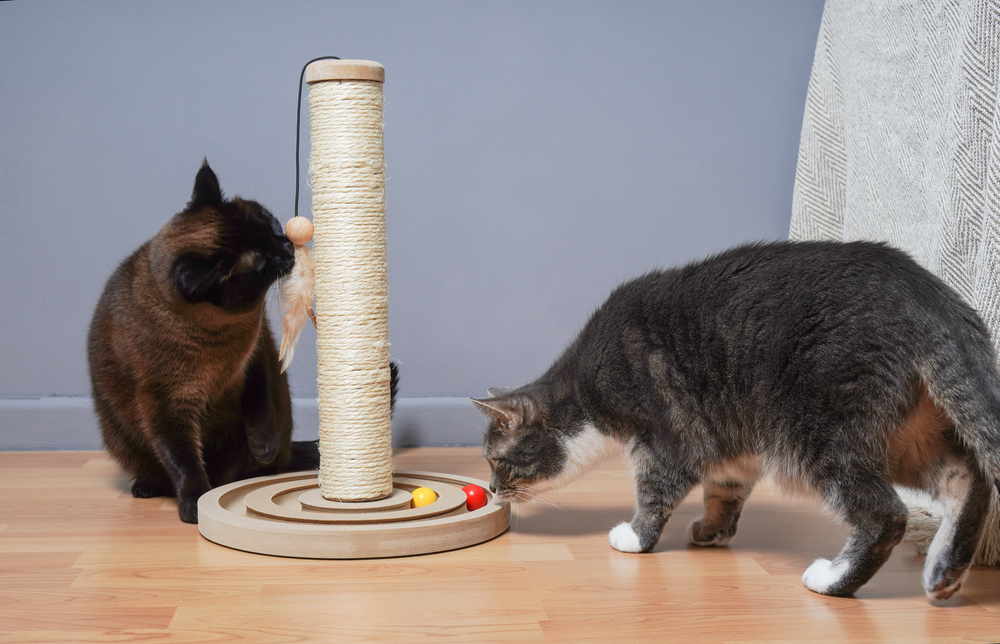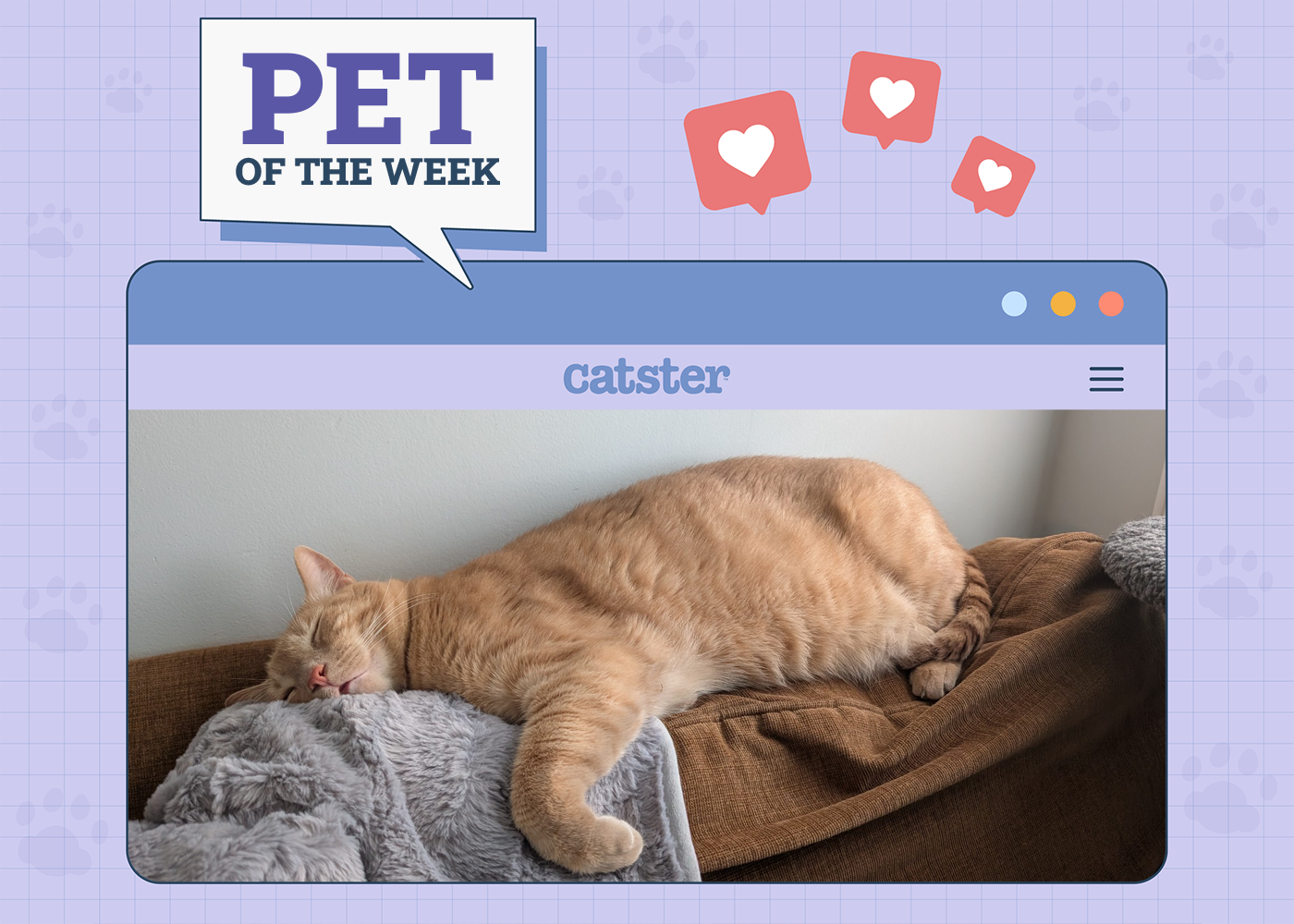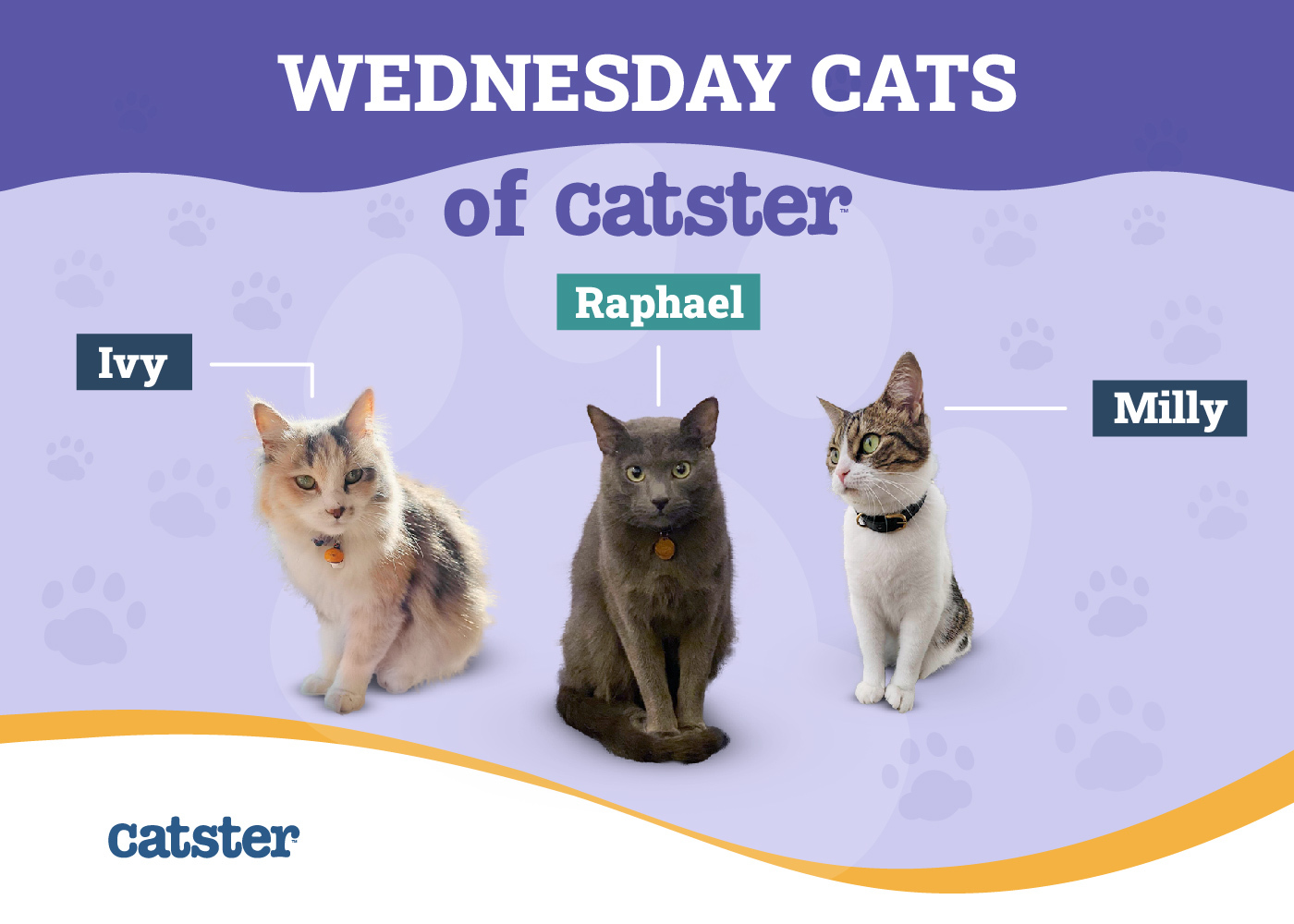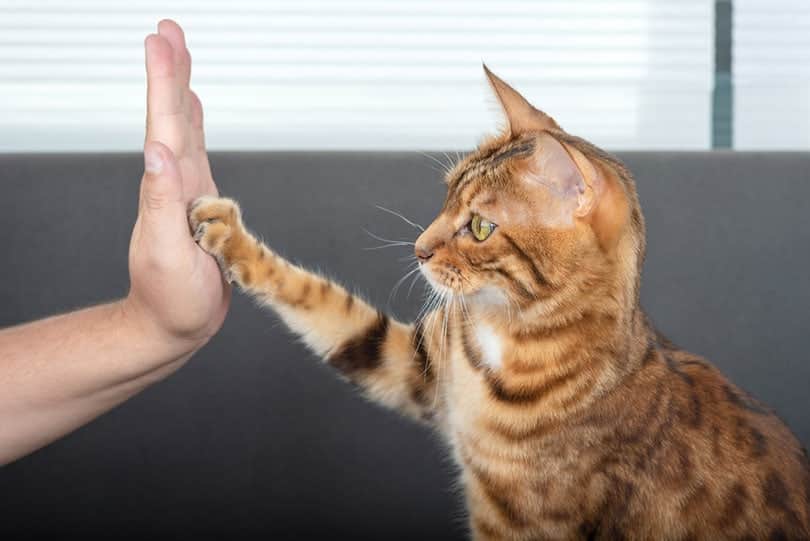Click to Skip Ahead
We know that cats can be playful, and when cats live together, they often engage in games of chase and wrestling, as well as some cuddle time. So if your cat doesn’t have any feline housemates, should you organize a playdate with another cat?
As a general rule, we don’t recommend playdates for cats.
Although cats that live together will often enjoy each other’s company, that isn’t always the case, and cats can take a long time to get used to each other. There are some exceptions to this rule, and we’ll talk about those, and how you can make a playdate safe and successful for those particularly friendly felines.
But first, let’s talk about why we don’t recommend playdates for cats, and how you can make sure they aren’t feeling lonely or bored at home.

Cats Are Not Pack Animals
Cats of a similar age will often form bonds more easily if introduced when they are young, just as littermates will usually be happy sticking together, which is something commonly seen in wild felines when they split off from their mother. Because most domestic cats are spayed/neutered before reaching sexual maturity, these bonds tend to persist if they are kept together. However, once those bonds are severed by separation, even littermates will often treat each other as strangers. This is because cats do not naturally live in groups or share territories.
Unlike our canine companions whose wolf-pack ancestry makes them inclined to meet, greet, and form friendships with other dogs, almost all wild felines are solitary by nature, treating other cats with suspicion and maintaining large territories to avoid contact and conflict. While pack animals like dogs will find comfort in each other, for a cat, territory is far more important.
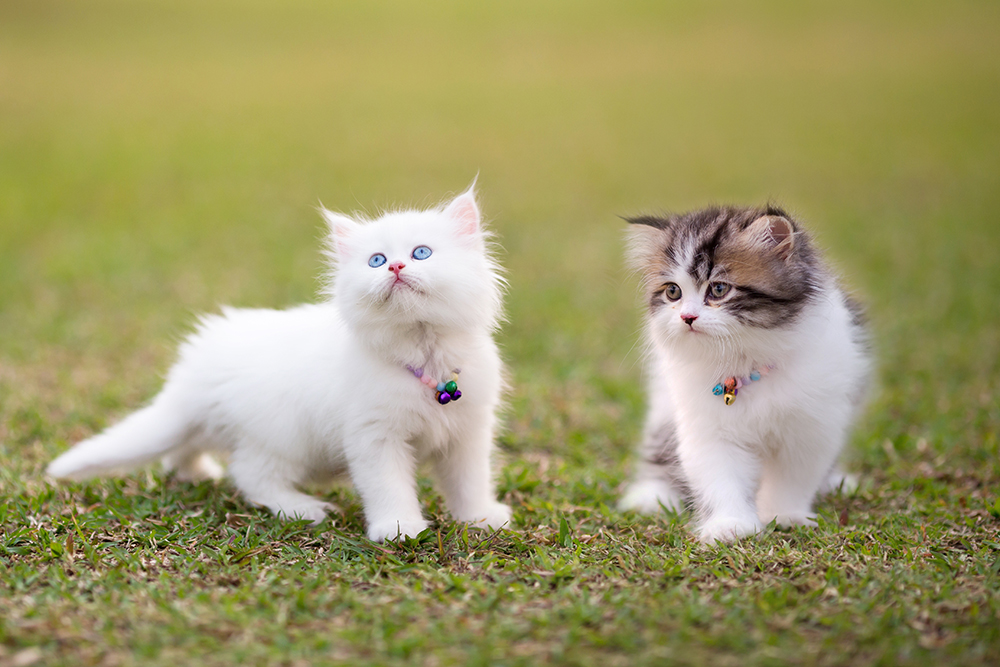
Cats Are Highly Susceptible To Stress
Cats don’t form the same types of complex relationships seen in dog packs, and their interactions with one another tend to form on an individual basis, which can be unpredictable and stressful. Even cats that seem pretty chilled out and confident can feel stressed when their territory is invaded by another, particularly if they are taken to an unfamiliar location.
Stress is one of the most significant factors in a cat’s health and well-being, and chronic stress is a major precursor to diseases like feline lower urinary tract disease (FLUTD) and inflammatory bowel disease (IBD). This is something we often see in cats living in multi-cat households who are unable to maintain a distinct territory. Moving a cat back and forth between locations means they will be deprived of the security of their territory, which can cause significant levels of stress.
Cats Fight or Flee
We know that cats can move lightning-fast, and if you take them to a new location, their instinct will be to defend themselves, escape, or hide. Although there are some cats that will walk into any new situation like they own the place, they are the exception, not the rule.
If you were to take your cat to an unfamiliar home, they may injure themselves trying to get away, get into a fight with their ‘playmate’, or even manage to escape, which would be a disaster if they are not close to home.
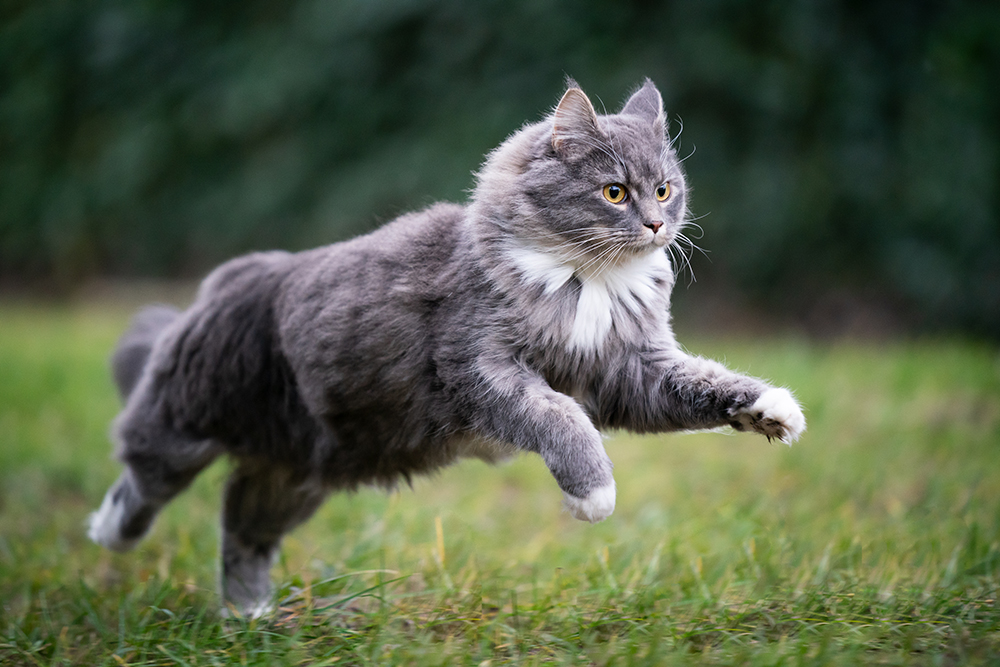
Cats Prefer Their Own Company
Although we might worry that our cats get lonely when we go to work, with very few exceptions, they would much prefer the peace and quiet of their own company than having a cat invade their territory, or be uprooted to visit another.
However, there will always be some exceptions.
Some Cats Are Social Butterflies
There will always be exceptions to the rules, and there are some cats out there who enjoy getting out and about and making new friends. Even so, there are a few things to keep in mind:
- These confident cats are often more comfortable meeting people and even dogs but are still wary of other felines.
- While your cat might be a super friendly feline, there is no guarantee that their prospective playdate will be as keen on socializing.
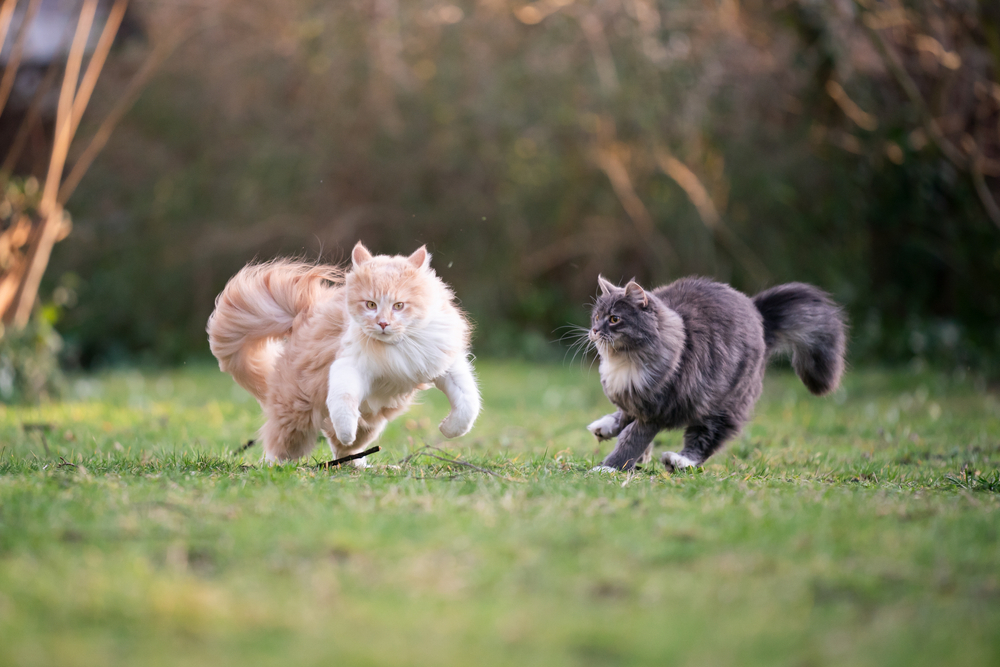
Stray Cat Colonies
You may have seen that some stray cats will sometimes form groups or colonies. This is sometimes a matter of necessity if space and resources are scarce. Often it is due to the fact that these cats are interbreeding, and related cats are more inclined to stick together. Interestingly, feral cats in Australia, which have started to undergo a process of ‘rewilding’ or ‘reverse domestication’, will occasionally live in small groups, but have largely reverted to a more solitary social structure.
Regularly Maintained Relationships
Littermates who are kept in contact on a very regular basis (a minimum of once per week) may maintain their bond and be comfortable having playdates. However, this will still involve moving between territories which will most likely be disruptive and stressful.

Playdate Alternatives
Ultimately, playdates for cats are not something we recommend. It might feel like we’re doing something nice and fun for our cats, but the reality is that we are more likely causing them stress. Instead, here are some better alternatives to arranging playdates:
1. Two Kittens Are Better Than One
If you are looking to bring home a new kitten, think about bringing two instead. Unlike puppies, who can be more challenging to train and socialize when you adopt littermates, bringing home siblings, or kittens of a similar age, can be a wonderful way to ensure your cat always has some feline company they enjoy. The added bonus is that cohabiting kittens will often use up loads of energy and get all their play-fighting done with each other, saving the cuddles for you.
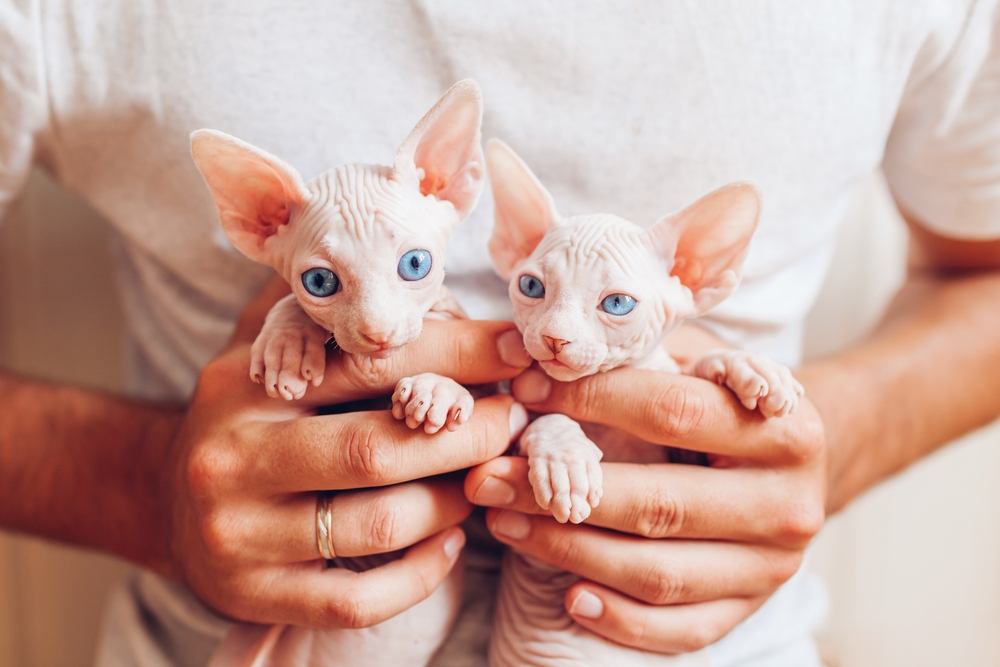
2. Adopt a Cat
If your heart is set on providing your cat with feline companionship, it will be less stressful in the long run to bring in a permanent housemate rather than having a back-and-forth relationship. Be aware that it can be a long and difficult process to introduce adult cats to each other. Many cat shelters will do the hard work and have cats that are bonded and ready to adopt together.
3. Provide Plenty of Entertainment and Stimulation
If your cat is living solo, they will most likely be perfectly content with their own company, but it’s important to make sure they have plenty of things to keep them occupied and enriched. Toys, games, feeding puzzles, cat trees, cat enclosures, and cat shelves are all great ways to keep your cat’s body and mind active without the stress of dealing with another feline invading their space.

Playdate Safety Tips
If you are going to go ahead with a feline playdate, there are some important steps to take to keep things as safe as possible.
- Vaccinations – Ensure cats are fully vaccinated and up to date with boosters.
- Parasite prevention – Ensure cats are up to date with flea and worming treatments.
- Pheromones – Use pheromone plug-ins and sprays to create a calm environment.
- Calming products – Consider using on the cats so they both emit a very zen aroma.
- Trim claws – Short claws can avoid some injuries if things don’t go well.
- Space and security – Ensure that the area you are using is completely secure and that there is plenty of space for the cats to get away from each other if they want to. Forcing cats to interact is not just unwise, it can be unkind.

Final Thoughts
While playdates for dogs are something that many will very much enjoy, it is not something we recommend for our feline friends. Cats are solitary creatures by nature, and will not easily form friendships with other cats. Although there may be exceptions to the rule, most cats will find the presence of another cat in their territory highly stressful, and cats will not enjoy being taken in and out of their homes. The stress this creates can be detrimental to your cat’s health, predisposing them to conditions like FLUTD and IBD.
Instead of arranging playdates for your cats, think about ways to enrich their environment and make sure you spend time playing with them. Adopting two kittens together is always better than just taking one, and if done carefully, you can even consider bringing a new cat into your home to provide some company but there is no guarantee that they will get along.
If your cat is an only child, don’t stress that they are lonely and in need of feline company. It is a very natural state for cats, and as long as you are providing them with plenty of affection, attention, and things to do, they will be far more content on their own than with a visiting friend.
Also see:
- Different Cat Personality Types: Understand Your Feline (Vet Reviewed)
- Do Cats Remember Their Mom Or Recognise Her Kittens? Facts & Info
Featured Image Credit: Axel Bueckert, Shutterstock

